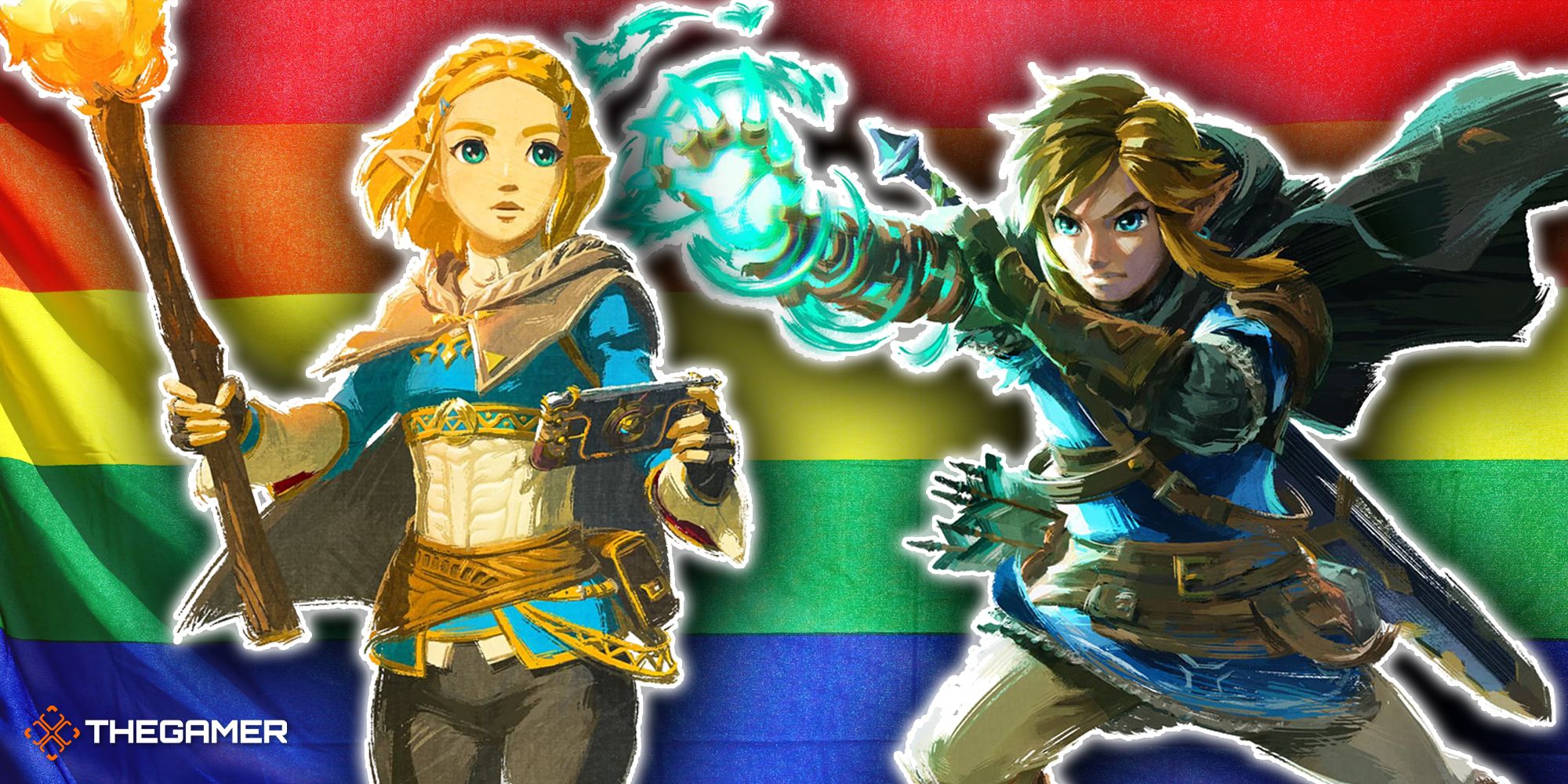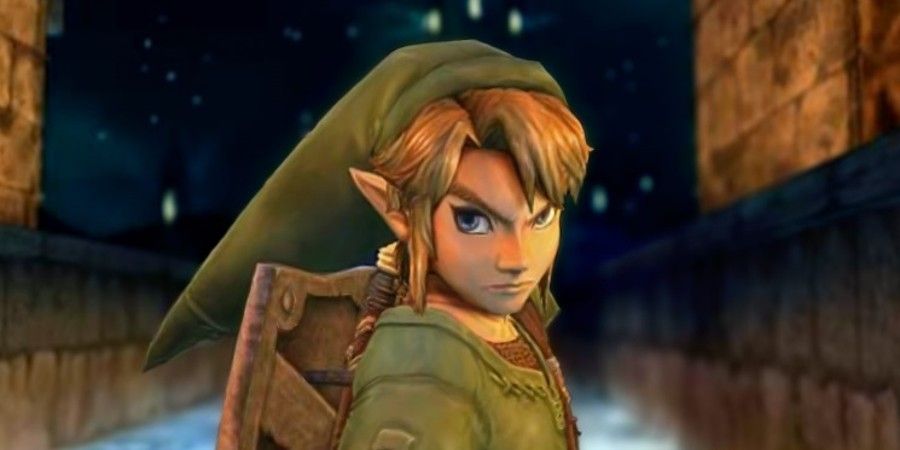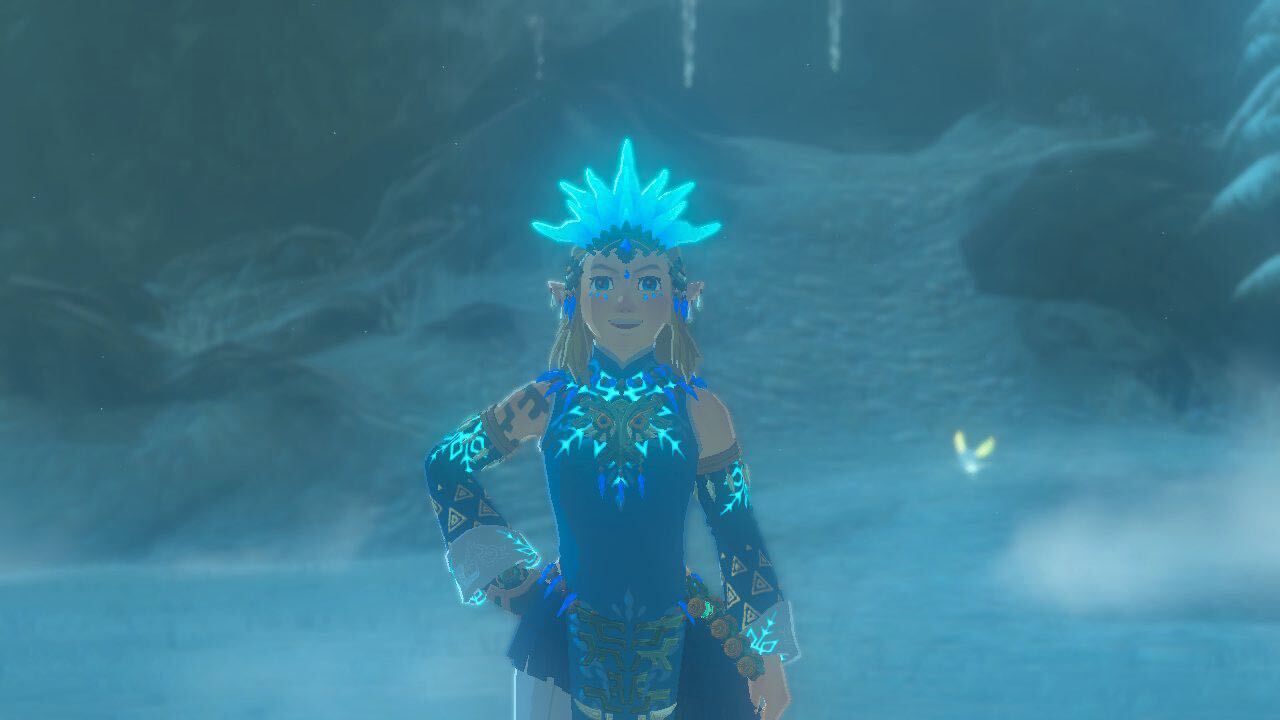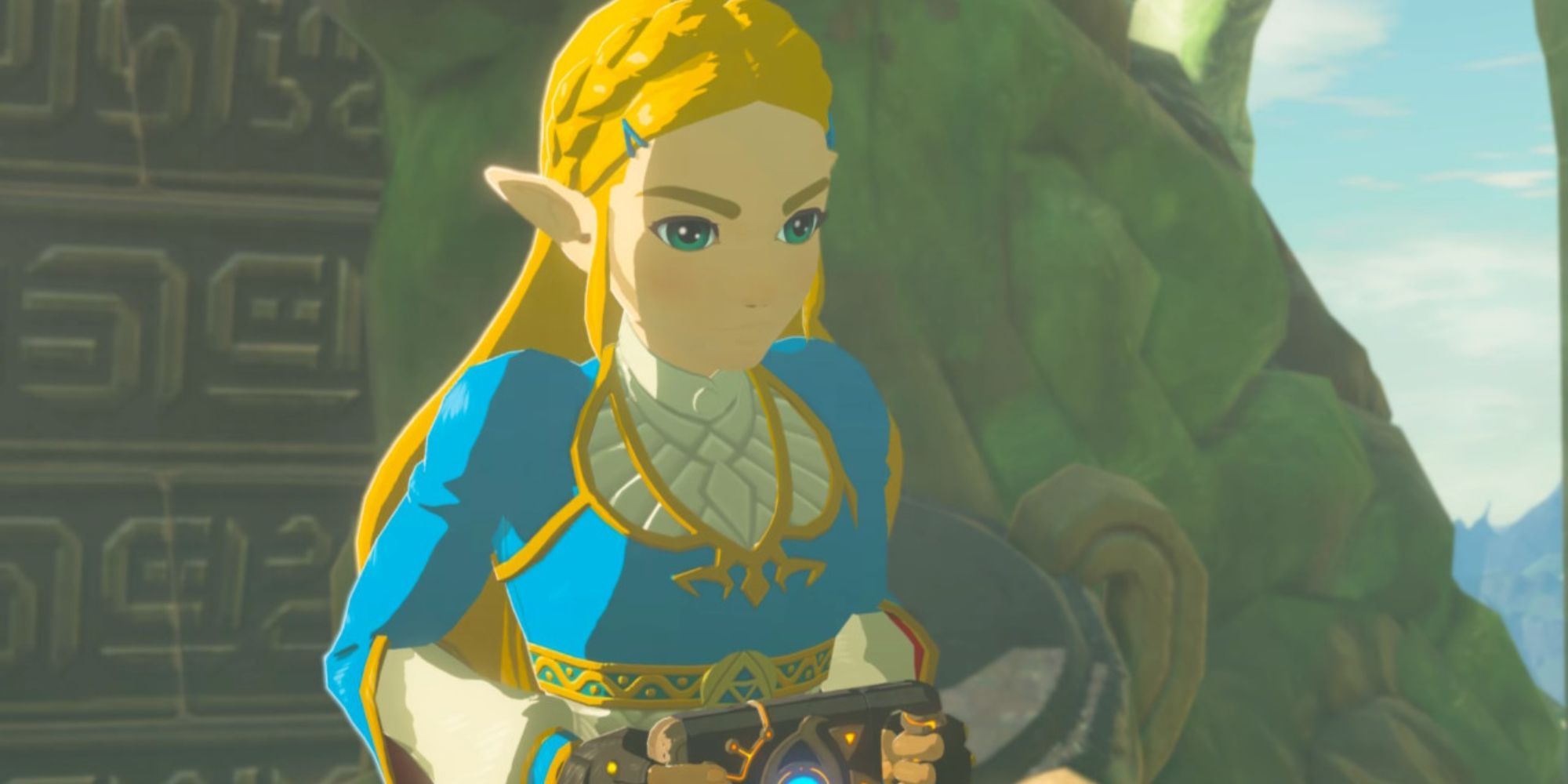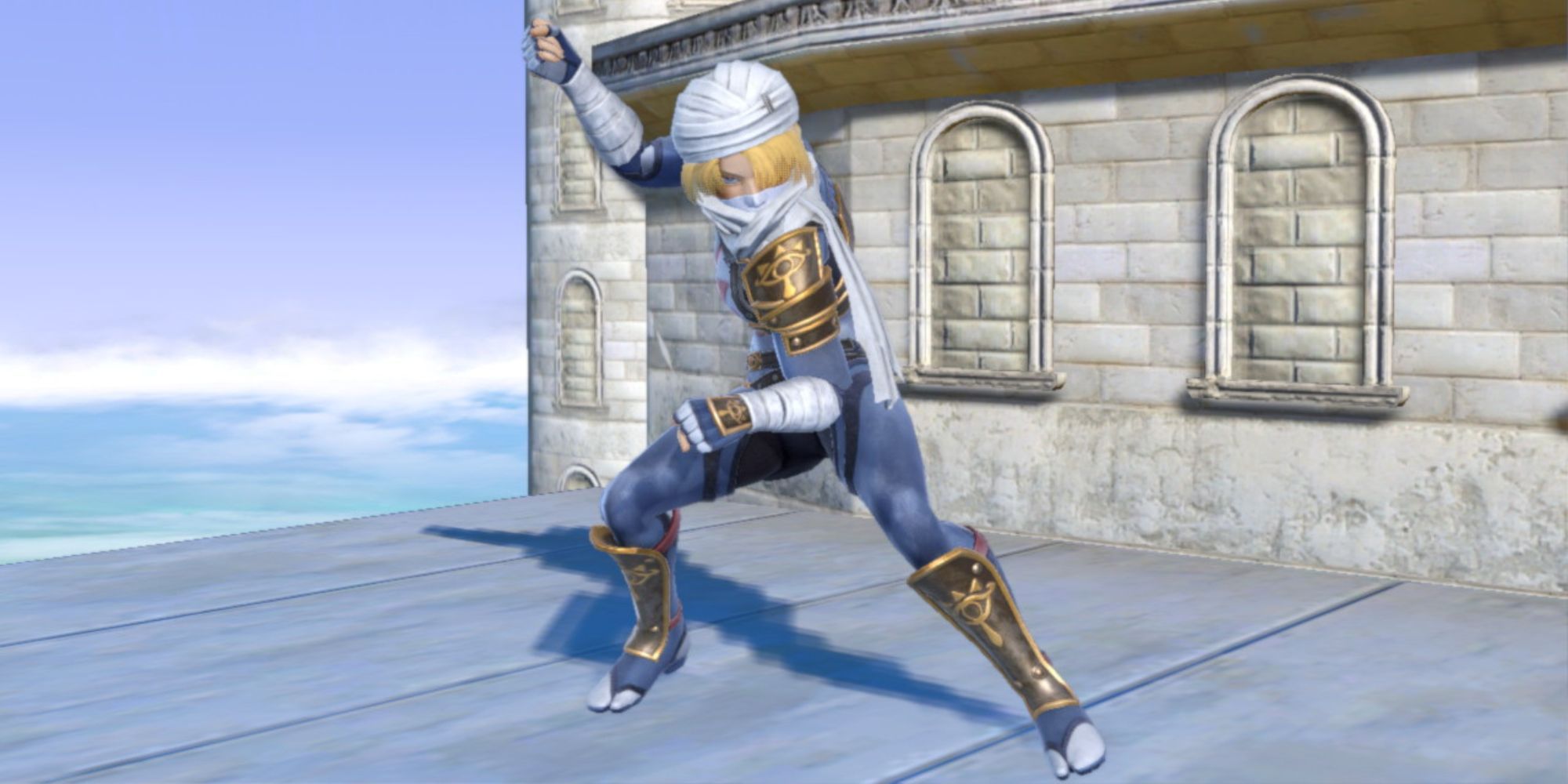Nintendo has often been quick to shut the assumption of LGBTQ+ characters or themes in its games down, the most recent example being Shiver in Splatoon 3. Companies like Nintendo have plenty of reasons to hide away queer themes, typically because they want to avoid controversy or confrontation, and have traditionally been more likely to mock queer themes than embrace them. Even The Legend of Zelda plays off old stereotypes of gay men in older games. But whether Nintendo knows it or not, Zelda is a series with queerness at its heart, and it’s been that way since the very beginning.
Link is the greatest showcase of this. He is the first character we see whenever we embark on a new adventure in Hyrule. Across the whole series, Link and Zelda are the single defining mainstays. Shigeru Miyamoto, the series creator, has said plenty of times in the past that ‘Link’ was an intentional name that serves as a way of connecting you, the player, to each game.
Link is meant to be a way of slotting yourself into the world with whatever values that presence represents. There’s the old joke of people calling Link ‘Zelda’, but it’s a fair mistake. Link was designed to be androgynous. Link isn’t the manliest man, but they’re not the girliest girl either. Why can’t they be something in between, or refuse to bear any label at all? They are you. Link lets players exist in the world regardless of how they look or what they represent, and that seems pretty damn queer to me.
Whatever you headcanon Link’s gender to be, you can’t escape the fact that each game does refer to him as a man. But really, gender is all performance anyway, and The Legend of Zelda is happy to let you perform some theatrics. You’ll no doubt have seen plenty of fanart of Link dressed up in whatever outfit the creator thinks suits him best, with many of these styles subverting traditional gender norms. Despite having become such an iconic character through their green tunic, it’s likely the last thing you’ll see them donning in fan art these days.
But Breath of the Wild was not the first game to let you put your own spin on Link’s outfit. Back in Tri Force Heroes we were introduced to a new version of Hyrule by the game of Hytopia. It was a country built around fashion, and that extended to the trio of Links present in the game. You want to dress up as a cheerleader? Go ahead. A literal cactus? Why not! Even as Zelda herself? If the dress fits…
Clothing is an integral part of gender expression. Putting a unique twist on yourself in a way that feels most comfortable and authentic to who you are is an experience shared by people the world over, and one that resonates intensely with queer people - and one The Legend of Zelda has only grown more welcoming towards. Tell me the last time a game with a male protagonist let you dress as revealingly as Link can? No matter what he wears, the Hero of Time is serving something fierce.
The narratives of each game play into these themes too. Saving the world from darkness is a tale as old as time, but The Legend Of Zelda emphasises hope. In A Link Between Worlds, the Dark World steals the Triforce because their own world is dying. There is no malicious intent, they just want to be able to exist again. It is through understanding and communication that this wish is granted. In Ocarina of Time, you’re faced with a future that seems impossibly bleak. Yet with perseverance, and an awakening to who you can be in time, that doomed future doesn’t come to pass.
Even Wind Waker, which shows a flooded landscape, presents a chance to build things anew. The Zora give up a comfortable life in the water to become the Rito so that they can exist in this wonderful new world. There’s hope in all these games, a hope that even when things that are seen as negative and shunned to the shadows are brought into the light, great things can happen. Zelda has always fostered the belief that togetherness, without discrimination, is what brings greatness to all.
At its core though, the series is all about Zelda. She’s the thematic core of each new story, and it’s her name in the title. Even in entries when her presence is minimal, her character still drives the adventure forward. One of her most iconic appearances is in Ocarina of Time, yet as Princess Zelda, she is rarely present. Instead, Link is helped along the way by the mysterious Sheik, someone with a decidedly muscular frame and mysterious gender. When this character is revealed as Zelda, it comes as a shock. The delicate princess bulked up and became the sole rebel of their kingdom for the last decade, and in the years since has become a queer awakening for many young teens regardless of their own gender. It’s a heavy burden to bear. Sheik isn’t the only trans allegory for Zelda, either.
Just about every game has one. Reincarnating in Skyward Sword as a goddess, giving up what she knew to grow into something better. Living as Tetra in Wind Waker to break from tradition and exist as she wants. Then Breath of the Wild has her attempt to live up to a legacy forced upon her by a late father, when all she really wants is to exist with everyone else. The best part of Zelda’s growth in Tears of the Kingdom is that it gives her the agency she fought for, allowing her to be the one that ultimately saves the day, and gets to live to see the new world she’s created. Zelda embodies so much of what queer people go through every day, having to hide who they are for the benefit of others when all they want is to exist and be accepted.
The Legend of Zelda’s themes are far-reaching, but they fit the lives of LGBTQ+ people perfectly, and have done so since the series’ inception. Link is selected by the Triforce to symbolise the courage that can exist in any one of us. They’re not special, they just have the bravery to fight for the world they want to exist in. And Zelda, well, when the series’ namesake is as front loaded with as many internal conflicts as she is, I think it’s hard to ignore the inherent queer themes. Go ahead and take her example though, because she shows that even in the darkest times, you can be the one to take your life into your own hands.

